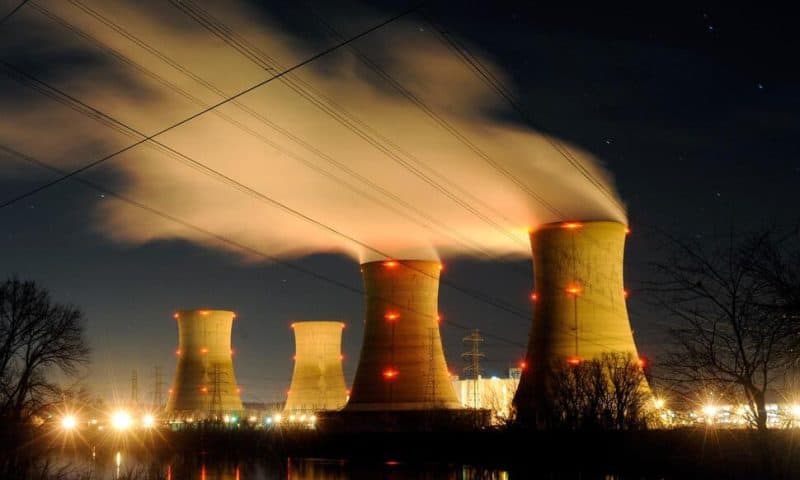Nuclear power is garnering renewed attention amid growing demand for power and cleaner energy
NEW YORK — Nuclear power is garnering renewed attention amid growing demand for power and cleaner energy.
The power source has seen a resurgence as nations focus on reducing emissions in an effort to combat climate change. At the same time, the technology sector’s energy needs are growing in the form of data centers and powerful advances in artificial intelligence.
Those factors have prompted companies and governments to look more closely at a power source whose potential hazards made it unpopular only a few decades ago. The U.S. is the fastest growing market for data centers, according to McKinsey, which forecasts demand to more than triple by 2030 to 80 gigawatts.
Constellation Energy plans on reopening Three Mile Island in Pennsylvania under a deal with Microsoft. Oracle plans to use new technology in the form of small modular nuclear reactors to power its data centers, while Google is purchasing nuclear energy from small modular reactors in development by Kairos Power. Amazon bought a data center powered by nuclear energy in Pennsylvania earlier this year and is also investing in small nuclear reactors.
“The power sector is rapidly becoming a protagonist in the AI story,” McKinsey analysts said in a report. “Access to power has become a critical factor in driving new data center builds.”
That demand, coupled with goals to get the nation’s power usage to “net zero” carbon emissions, means that the expectations for nuclear power contributions are jumping. Nuclear power already provides about 20% of all electricity generation in the U.S., and the International Atomic Energy Agency expects that nuclear electrical generating capacity could nearly triple in North America by 2050.
Nuclear power has the U.S. government’s support as an option moving ahead for cleaner energy to help lower carbon emissions. Georgia’s Vogtle nuclear power plant opened two new reactors over the last several years.
The forecasts for growing demand have made utilities with nuclear plants a target for deals with big data companies.
Three Mile Island, located in Pennsylvania, was the site of the worst commercial nuclear accident in U.S. history, when its Unit 2 reactor suffered a partial meltdown and went offline in 1979. The recent deal between Microsoft and Constellation proposes reopening the Unit 1 reactor, which remained in operation until 2019.
“This deal recognizes the critical role that nuclear has in providing clean energy, and supporting reliability,” said Daniel L. Eggers, Constellation’s chief financial officer, in a call with analysts.
Several states still have moratoriums on nuclear power development, but there has been a movement over the last 10 years to repeal them. Wisconsin, Kentucky, Montana and West Virginia are among states that have reopened the door to reactor construction. Other states, including New York, have partial restrictions based on size and location.
The demand for nuclear power is shining a brighter light on nuclear technology companies and uranium miners.
NuScale Power has seen its stock leap more than five times this year, following a 40% jump in 2023. The company makes small modular reactors, which have a smaller footprint than typical nuclear power plants and reactors. Wall Street expects its revenue to surge in the coming years.
Uranium prices are near a 15-year high. The surge in prices has helped bolster stocks for companies including Cameco and NexGen as the uranium miners and their peers face rising demand for the fuel.

